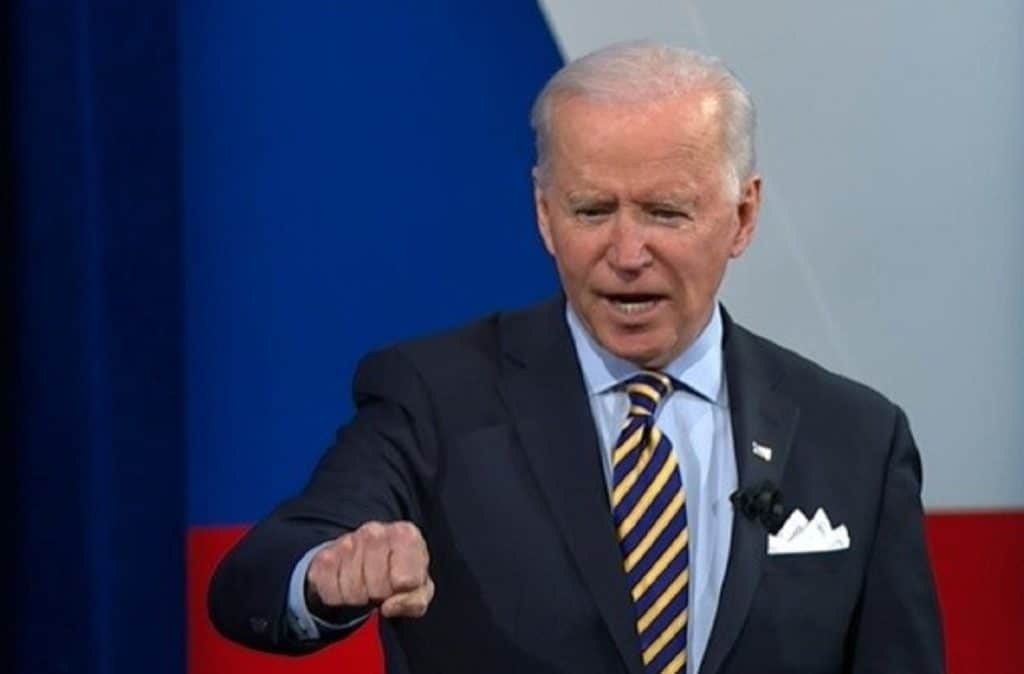By Andrew K.P. Leung (International and Independent China Strategist. Chairman and CEO, Andrew Leung International Consultants and Investments Limited)
 After doubling down on on his predecessor’s all-out anti-China manoeuvres without avail, President Biden seems to be exploring a change of tack.
After doubling down on on his predecessor’s all-out anti-China manoeuvres without avail, President Biden seems to be exploring a change of tack.
He has recently dispatched a series of high-level feeler-negotiators to China, including Special Presidential Envoy for Climate John Kerry, Deputy Secretary of State Wendy Sherman, and National Security Advisor Jake Sullivan. The perceptible shift in tone and tactics seems to bear out the thrust of Jack Sullivan’s piece in Foreign Affairs (September/October 2019 issue) which he co-authored with Kurt Campbell, White House coordinator for the Indo-Pacific.
The insightful piece Competition Without Catastrophe -How America Can Both Challenge and Coexist With China contains the following takeaways –
(a) As a near-peer competitor with an ideology and model at odds with American values and strategic interests, China’s rapid rise and close economic inter-dependency with the United States presents unprecedented challenges very different from the former USSR. A zero-sum Cold War mindset hoping for China’s eventual collapse is little more than a pipedream;
(b) America’s rivalry and clash with China cover multiple domains; the military, economy, politics, and global order. These cover the Indo-Pacific, South China Sea, Taiwan, breakthrough technologies, state-driven trade practices, political ideology, and international institutions such as the World Trade Organization and the United Nations.
(c) With many Western allies, the United States should maintain leadership of the rule-based liberal world order consistent with American values of democracy and human rights. There should be no “Grand Bargain” conceding America’s strategic interests in exchange for much-needed cooperation with China on such global issues as Climate Change, anti-terrorism and de-nuclearization.
(d) Instead of matching China dollar for dollar or battleship for battleship, the United States should take a leaf from China’s book of asymmetric tactics, e.g. by developing underwater drones and hypersonic guided missiles. Instead of more permanent military bases around he globe, America could broker various “access” agreements with friendly nations in key locations. The objective should be “deterrence without dominance“.
(e) Likewise, against China’s Belt and Road Initiative (BRI), the United States-led Build Back Better World (B3W) initiative with OECD doesn’t need to match size for size, but focus on showcasing quality, transparency, open competition, and good governance, including debt and ecological sustainability,
(f) The United States should continue to deny China’s access to cutting-edge technologies. Why should the United States help its arch-rival to compete?
(g) To compete with China globally, America should put its house in order by enhancing its education system and homeland infrastructure.
(h) In sum, America should lead with managed competition and coexistence with China, offering cooperation where it suits both sides without losing ground on America’s core values and strategic concerns.
That’s all very well. The trouble is that when push comes to shove, this narrative may be viewed as wanting to eat one’s cake and have it at the same time. China has core values and interests as well, such as the China Dream to reclaim its rightful place as a world power, its remarkably successful state-driven development model and its definition of “collective” human rights.
China has become the largest trading partner to two-thirds of the world. Most countries, including America’s European and Asian “allies”, prefer hedging rather than being forced to take sides against China.
How much would China be prepared to give and how much the United States is prepared to concede will continue to test the wish to “both challenge and coexist With China”.
Author: Andrew K.P. Leung (International and Independent China Strategist. Chairman and CEO, Andrew Leung International Consultants and Investments Limited)
(The views expressed in this article belong only to the author and do not necessarily reflect the views of World Geostrategic Insights).







